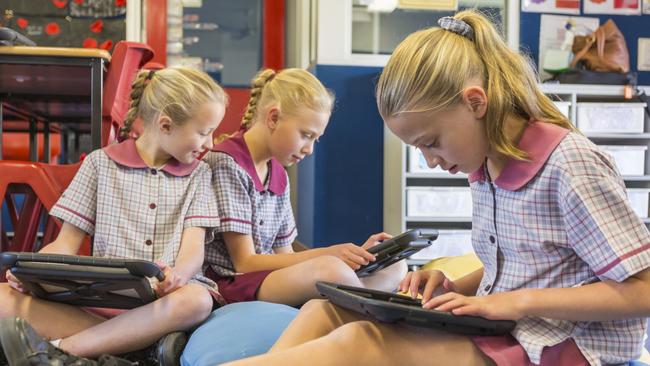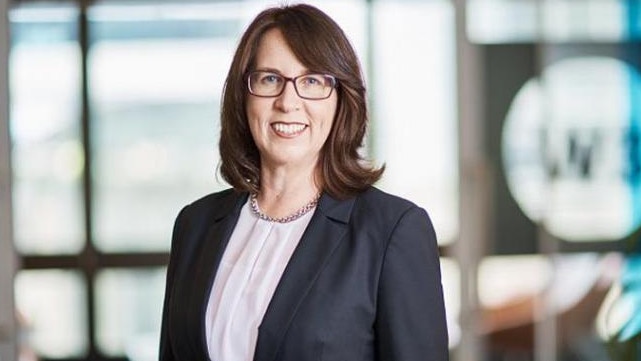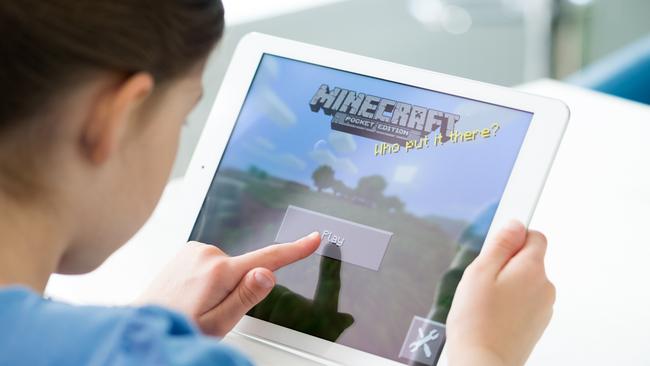Tougher privacy laws being drafted to ban tech giants from spying on Australian kids
Toys and appliances such as TVs that “spy” on owners could be restricted under tough new privacy laws to protect Australian children and their data.
National
Don't miss out on the headlines from National. Followed categories will be added to My News.
Exclusive: Cyber giants that spy on kids through social media, tech-toys and online games could risk $10 million fines under federal government plans to protect children’s privacy.
Attorney-General Michaelia Cash is drafting tougher privacy laws to ban tech giants from cashing in on children’s data through advertising.
Internet-enabled toys and appliances such as TVs that “spy’’ on owners by streaming live conversations into databases could also be restricted under new privacy rules.
Australian Information and Privacy Commissioner Anglene Falk said children have the right to grow up “without being profiled and targeted’’ for advertising.
She is pushing for Australia to follow the United States, which requires parental consent before companies can collect and share the personal information of children younger than 13.
“Digital platforms need tighter controls and we need stronger laws to enforce them,’’ she told News Corp Australia.

“Some high-risk activities should be considered for prohibition, such as profiling, tracking or behaviour monitoring of children, or direct advertising targeted at children.
“Behavioural monitoring is about advertisers learning what your interests are online, and targeting you with ads for products you’ll be interested in.
“In the US it’s prohibited where services are targeting children.’’
Ms Falk is drawing up a binding code of conduct for tech giants, to make children a “no-go zone’’ for siphoning and selling data to advertisers.
Companies that break the rules could be punished with $10 million fines, under draft legislation being finalised by the Attorney-General that would place Privacy Act violations on par with breaches of consumer law.
“We are working toward the introduction of a binding code for social media and online platforms which will strengthen protections for children,’’ Ms Falk said.
“Business needs to respond to these concerns and do more to meet community expectations by ensuring there are specific privacy measures in place to protect children on their platforms.
“We are expecting the draft legislation is going to offer greater penalties and fines.’’

Ms Falk said many Australians are worried about privacy invasions through the Internet of Things – smart devices like internet-enabled TVs, toys, security devices and even fridges.
“We know that 72 per cent of adults are concerned about increased privacy risks from the Internet of Things,’’ she said.
“There needs to be greater transparency about how information is handled.’’
Ms Falk said parents should teach children not to share too much information online.
“Our personal information is valuable – who we are, our age, where we live, and what our interests are,’’ she said.
“If it falls into the wrong hands it can cause us harm.
“Due to identity theft, scam and online fraud, we need to minimise the personal information we put online.
“Think carefully before you hand over important personal information like your date of birth or your address.
“Once you share your information online it’s hard to get it back.’’

The US Federal Trade Commission fined YouTube $220 million in 2019 to settle allegations that it collected kids’ data without parental consent.
And Chinese-owned TikTok is fighting legal action launched last month by a former Children’s Commissioner for England, Anne Longfield, over its alleged harvesting of children’s data, in breach of European Union law.
How to protect child privacy online
- Make sure they know what information can be shared online, and what should be kept private, such as birthdates and addresses.
- Teach children to use strong passwords and not share them.
- Ensure all children’s devices are locked with a passcode.
- Disable geolocation services when they are not needed.
- Only download apps from reputable sources.
- Set privacy controls when children get a new device or start using a new game or app.
- Control cookies and use ad blockers to limit the amount of information about your child that can be used for advertising.
- Be careful about what information you share about your children online as this contributes to their digital footprint.
Source: Office of the Australian Information Commissioner
More Coverage
Originally published as Tougher privacy laws being drafted to ban tech giants from spying on Australian kids





